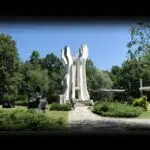Anti-Fascist Struggle Day is a public holiday observed every June 22 by Croatians. It is a day commemorating the beginning of the Yugoslavian uprisings against the invading German and Italian forces during World War II. Germany and allies, Italy and Bulgaria, and others invaded the Yugoslavian Empire and swiftly took control of it. The Empire’s army surrender shook Yugoslavians to the core. However, before long, they managed to wake up and began armed uprisings in different places, starting with the historic Partisan formed in the forest of Brezovica near Sisak.
History of Anti-Fascist Struggle Day
The Croatian Parliament laid the foundation of Anti-Fascist Struggle Day in 1991. The day began in the forests of Brezovica close to the Central Croatian city of Sisak. It follows the creation of the First Partisan Detachment, sworn to oppose German and Italian rule in the then Yugoslavian Empire. Popularly known as the First Sisak Partisan Detachment, this guerilla unit marked the beginning of other uprisings, which mounted a series of guerilla attacks to topple Nazi rule in Yugoslavia in 1941.
When Germany and its allies overtook the Empire, the occurrence came too sudden for Yugoslavians to combat. However, a few months after in 1941, some brave Yugoslavians, seeing how dangerous their towns were becoming, retired to the forests of Brezovica near the city of Sisak. On June 22, they assembled a total number of 77 men, a good number of whom were Croatians, who formed the First Sisak Partisan Detachment — the first out of many future communist-led guerilla units that mounted what came to be known as the largest resistance force in occupied Europe in 1944.
With the fall of Nazi Germany in 1945, Yugoslavians became finally free. The number of occupying forces had already begun to dwindle a few years before. The Italians withdrew from the Empire in 1943, whereas the Hungarians retreated a year before. Of the 77 fighters that formed the First Sisak Partisan Detachment, only 38 survived. The deceased were buried in a special memorial park in Sisak.
Anti-Fascist Struggle Day timeline
The German and Italian forces invade Yugoslavia during World War II.
A three-point negotiation between the two parties begins.
With 800,000 men, the Partisan movement becomes the largest resistance force in occupied Europe.
Berlin falls to the Russian Army, ending the war in Europe.
Croatia and other neighboring nations become independent after the dissolution of the Socialist Federal Republic of Yugoslavia.
Anti-Fascist Struggle Day FAQs
Did Yugoslavia fight in World War II?
Yes, against Germany and allied forces that occupied the country during World War II.
Why did Croatia leave Yugoslavia??
Among other reasons is the fact that tribal and cultural differences divided the people of Yugoslavia. After the fall of the communist leader, all the nations under Yugoslavia dissociated.
What happened to Yugoslavia after World War II?
The Empire remained a federation of six republics held together by communist power under the leadership of Tito.
How to Observe Anti-Fascist Struggle Day
Lay wreaths
Visit the memorial park dedicated to the First Detachment of the uprising. Lay a wreath to honor the brave fighters who stood up for their nation’s freedom.
Reminisce on the struggles
Remember the sacrifices and efforts of all Croatians who rose to free their nation from occupation. There is plenty of information you can access to help you remember.
Visit Sisak
See for yourself the city that started it all. It will be an adventurous trip as you learn more about this region.
5 Interesting Facts About Croatia
It’s a sunny country
More than a quarter of the year is sunny in Croatia.
It has a UNESCO record
Croatia has the highest number of UNESCO Intangible Goods in Europe.
The currency has a unique name
Croatia's currency is called Kuna — the name of a local rodent.
There are dialects everywhere
There are dialects in Croatia too many to count to the extent that people hardly understand each other.
It’s home to the smallest town
Croatia houses Hum which is the smallest town in the world.
Why Anti-Fascist Struggle Day is Important
It promotes unity
It shows how speaking and acting as one can go a long way in liberating us from almost anything that holds us captive. The men who died for their nation’s freedom prove this.
Remembering the fallen
It gives Croatians a chance to show their respect and adoration to their sons and daughters who died fighting for what they believed in. It brings about a sense of national pride.
Revisit history
It is important to recount the historical events surrounding the uprising. This is a great way to ensure that the coming generations never forgot.
Anti-Fascist Struggle Day dates
| Year | Date | Day |
|---|---|---|
| 2026 | June 22 | Monday |
| 2027 | June 22 | Tuesday |
| 2028 | June 22 | Thursday |
| 2029 | June 22 | Friday |
| 2030 | June 22 | Saturday |














